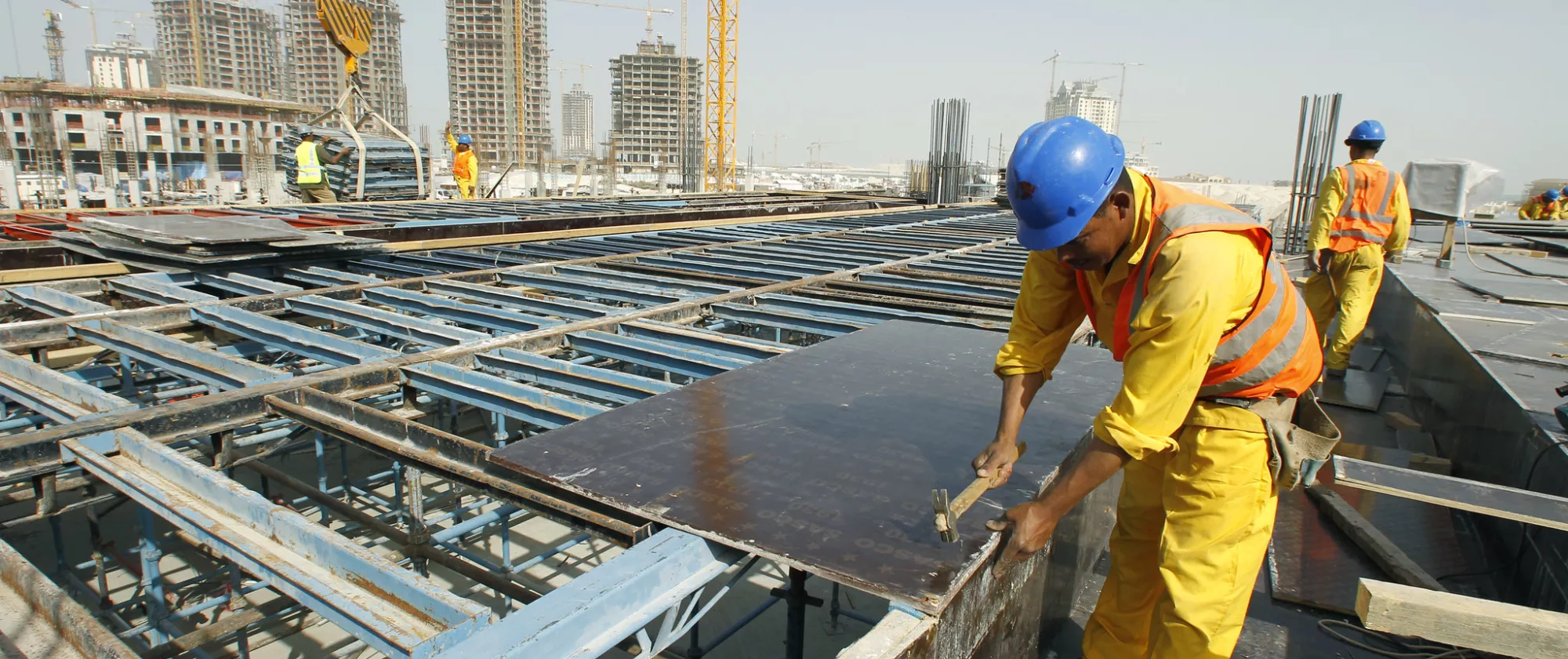
Construction sector
The construction industry produces a wide range of products, and the enterprises are equally diverse. However, the vast majority of enterprises involved in on-site construction are small and local. Despite globalization and the existence of an international construction industry, the majority of construction activity is still undertaken by local firms. There is a tendency among enterprises in construction (as in other industries) to outsource the supply of goods and services required in the production process. Building materials, plant and equipment are generally purchased or hired from other enterprises. Specialized services are supplied by subcontractors, and labour by labour agents. Design and engineering services are also provided by separate professional entities.
There have been technological changes in the industry, notably the increasing use of environment-friendly technologies. There is a need for skills training for workers and managerial training for enterprises to adapt to such changes. The decentralization of government activities related to construction bring new demands for local authorities, involved on a large amount of construction activities through direct administration and/or contracting private enterprises. Following, there is a need to build the capacity of local authorities regarding labour issues in construction.
The construction industry generates jobs for large numbers of people. Labour conditions vary widely throughout the world. The Sectoral Policies Department (SECTOR) has undertaken research on emerging labour issues in the construction industry, facilitated social dialogue among the ILO’s tripartite constituents, provided technical advice, and developed practical tools, policy recommendations, and training modules used by the headquarters and field offices.
Technical meeting on the promotion of decent work and a just transition in the building materials industry, including cement
The purpose of the meeting will be to discuss opportunities and challenges for promotion of decent work and a just transition in the building materials industry, including cement, with the aim of adopting conclusions, including recommendations for future action.
The meeting will take place in Geneva from 23-27 September 2024.
News

Spain ratifies key occupational safety and health standards for construction and agriculture

ILO and Embassy of Japan in Ethiopia launch a project to enhance disaster resilience in Kebribeyah and Jijiga town

ILO: 34 million jobs lost in Latin America and the Caribbean due to crisis

Code of practice
The objective of this code is to provide practical guidance for the use of all those, both in the public and private sectors, who have obligations, responsibilities, duties and rights regarding safety and health in construction.
Key resources
All publications
Guide to the Safety and Health in Construction Convention, 1988 (No. 167) and Recommendation (No. 175)
Building a preventative Safety and Health Culture in Construction
Good Practices and challenges in Promoting Decent Work in Construction and Infrastructure Projects
A multi-sectoral approach to Decent Work in the urban economy